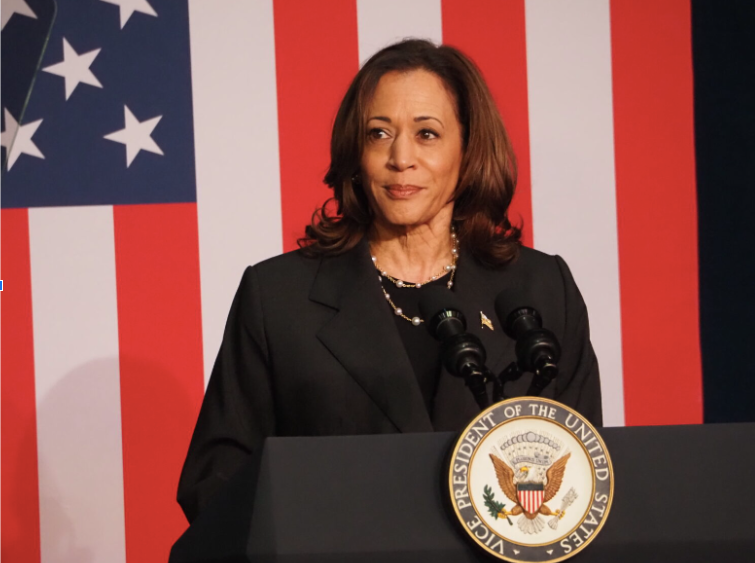
- Details
- By Neely Bardwell
Native Vote 2024. KALAMAZOO, Mich. — On Wednesday, July 17, Vice President Kamala Harris visited a key battleground state for the upcoming election, Michigan, on behalf of the Biden-Harris campaign. The event took place at the Kalamazoo Air Zoo with the Vice President surrounded by old planes and other aircraft.
Wednesday was the Vice President Harris' fourth trip to Michigan this year and seventh since taking office.
Harris delivered remarks and participated in a conversation with Olivia Troye, a former Trump-Pence administration national security official, and Amanda Stratton, a Michigan mother and former Republican voter.
Amanda Stratton shared her personal experiences with infertility and miscarriage, highlighting the importance of access to reproductive healthcare. She expressed gratitude for the right to make decisions in consultation with her doctors and emphasized the need to safeguard reproductive healthcare.
Olivia Troye, who referred to herself as a “recovering Republican,” spoke about her experience working in the Trump Administration and emphasized the importance of voting for Biden at the threat of a ban on abortion under the Trump administration.
Harris started by greeting the audience and praising U.S. Sen. Debbie Stabenow for her years of hospitality. Before getting into any campaign talk, the Vice President extended her sympathies to the Trump family and family of the man killed in an attempted assassination at a Trump rally last week.
“The bottom line is no one should have to fear for the safety of a loved one because they serve in public office,” said Harris. “Our heart goes out to the family of Corey Comperatore, a true hero who died protecting his family.”
The Vice President spoke with a campaign slogan banner that read “Trust Women” behind her. Like Stratton and Troye, she emphasized the importance of having reproductive freedom and the right to choose.
“The hallmark of any democracy is a strong competition of ideas, policies, and a vision for the future. And just as we must reject political violence, we must also embrace a robust discussion about what is at stake in this election. The surest way to reaffirm the strength of our democracy is by engaging in a vigorous and civil exchange of ideas,” said Harris. “It is not time to throw up our hands, it is time to roll up our sleeves.”
More Stories Like This
Native News Weekly (August 25, 2024): D.C. BriefsNative Bidaské: The Illusion of Freedom and the Myth of America 250, Leonard Peltier Speaks Out
Monday Morning (March 2, 2026): Articles You May Have Missed This Past Weekend
Native News Weekly (March 1, 2026): D.C. Briefs
Scope Narrowed, Report Withheld: Questions Mount Over Michigan Boarding School Study
Help us defend tribal sovereignty.
At Native News Online, our mission is rooted in telling the stories that strengthen sovereignty and uplift Indigenous voices — not just at year’s end, but every single day.
Because of your generosity last year, we were able to keep our reporters on the ground in tribal communities, at national gatherings and in the halls of Congress — covering the issues that matter most to Indian Country: sovereignty, culture, education, health and economic opportunity.
That support sustained us through a tough year in 2025. Now, as we look to the year ahead, we need your help right now to ensure warrior journalism remains strong — reporting that defends tribal sovereignty, amplifies Native truth, and holds power accountable.
 The stakes couldn't be higher. Your support keeps Native voices heard, Native stories told and Native sovereignty defended.
The stakes couldn't be higher. Your support keeps Native voices heard, Native stories told and Native sovereignty defended.
Stand with Warrior Journalism today.
Levi Rickert (Potawatomi), Editor & Publisher


